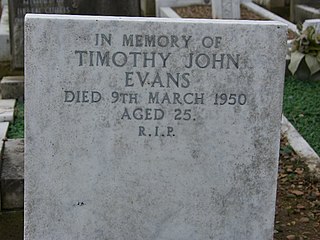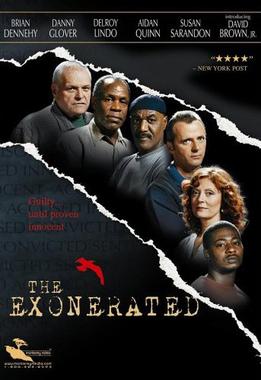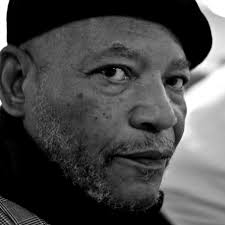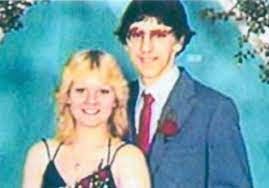Related Research Articles
Innocence Project, Inc. is a 501(c)(3) nonprofit legal organization that works to exonerate the wrongly convicted through DNA testing and other forms of post-conviction relief, as well as advocate for criminal justice reform to prevent future injustice. The group cites various studies estimating that in the United States between 1% and 10% of all prisoners are innocent. The Innocence Project was founded in 1992 by Barry Scheck and Peter Neufeld who gained national attention in the mid-1990s as part of the "Dream Team" of lawyers who formed part of the defense in the O. J. Simpson murder case.

A miscarriage of justice occurs when an unfair outcome occurs in a criminal or civil proceeding, such as the conviction and punishment of a person for a crime they did not commit. Miscarriages are also known as wrongful convictions. Innocent people have sometimes ended up in prison for years before their conviction has eventually been overturned. They may be exonerated if new evidence comes to light or it is determined that the police or prosecutor committed some kind of misconduct at the original trial. In some jurisdictions this leads to the payment of compensation.

The Innocent Man: Murder and Injustice in a Small Town is a 2006 true crime book by John Grisham, his first nonfiction title. The book tells the story of Ronald 'Ron' Keith Williamson of Ada, Oklahoma, a former minor league baseball player who was wrongly convicted in 1988 of the rape and murder of Debra Sue Carter in Ada and was sentenced to death. After serving 11 years on death row, he was exonerated by DNA evidence and other material introduced by the Innocence Project and was released in 1999.
Exoneration occurs when the conviction for a crime is reversed, either through demonstration of innocence, a flaw in the conviction, or otherwise. Attempts to exonerate individuals are particularly controversial in death penalty cases, especially where new evidence is put forth after the execution has taken place. The transitive verb, "to exonerate" can also mean to informally absolve one from blame.

The Exonerated is a made-for-cable television film that dramatizes the stories of six people, some of whom, were wrongfully convicted of murder and other offenses, placed on death row, and later exonerated and freed after serving varying years in prison. It was based on a successful stage play of the same name written by Erik Jensen and Jessica Blank and first aired on the former CourtTV cable television network on January 27, 2005. It is directed by Bob Balaban and was produced by Radical Media.
This is a list of notable overturned convictions in the United States.

Cincinnati Opera is an American opera company based in Cincinnati, Ohio and the second oldest opera company in the United States. Beginning with its first season in 1920, Cincinnati Opera has produced operas in the summer months of June and July with the Cincinnati Symphony Orchestra providing orchestral accompaniment.

Delbert Lee Tibbs was an American man who was wrongfully convicted of murder and rape in 1974 in Florida and sentenced to death. Later exonerated, Tibbs became a writer and anti-death penalty activist.

Michael Morton is an American who was wrongfully convicted in 1987 in a Williamson County, Texas court of the 1986 murder of his wife Christine Morton. He spent nearly 25 years in prison before he was exonerated by DNA evidence which supported his claim of innocence and pointed to the crime being committed by another individual. Morton was released from prison on October 4, 2011, and another man, Mark Alan Norwood, was convicted of the murder in 2013. The prosecutor in the case, Ken Anderson, was convicted of contempt of court for withholding evidence after the judge had ordered its release to the defense.
Clarence Arnold Elkins Sr. is an American man who was wrongfully convicted of the 1998 rape and murder of his mother-in-law, Judith Johnson, and the rape and assault of his wife's niece, Brooke Sutton. He was convicted solely on the basis of the testimony of his wife's six-year-old niece who testified that Elkins was the perpetrator.
The National Registry of Exonerations is a project of the University of Michigan Law School, Michigan State University College of Law and the University of California Irvine Newkirk Center for Science and Society. The Registry was co-founded in 2012 with the Center on Wrongful Convictions at Northwestern University School of Law to provide detailed information about known exonerations in the United States since 1989. As of February 6, 2020, the Registry has 2,551 known exonerations in the United States since 1989. The National Registry does not include more than 1,800 defendants cleared in 15 large-scale police scandals that came to light between 1989 and March 7, 2017, in which officers systematically framed innocent defendants.
The Illinois Innocence Project, a member of the national Innocence Project network, is a non-profit legal organization that works to exonerate wrongfully convicted people and reform the criminal justice system to prevent future injustice.

Investigating Innocence is a nonprofit wrongful conviction advocacy organization that provides criminal defense investigations for inmates in the United States. Investigating Innocence was founded in 2013 by private investigator Bill Clutter to assist nationwide Innocence Project groups in investigating innocence claims. "Once we have a case that meets our criteria, we'll put private investigators to work on it. A lot of these cases need investigators," said Kelly Thompson, executive director of Investigating Innocence. Prior to his work on Investigating Innocence, Clutter was one of the founders of the Illinois Innocence Project. Investigating Innocence also has a board composed of exonerees that reviews incoming cases.

Nicholas James Yarris is an American writer and storyteller who spent 22 years on death row in Pennsylvania after being wrongfully convicted of rape and murder.

Opera Fusion: New Works (OF:NW) is a partnership between Cincinnati Opera and the University of Cincinnati College-Conservatory of Music (CCM) dedicated to fostering the development of new American operas. This collaboration is jointly led by Evans Mirageas, the Harry T. Wilks Artistic Director at Cincinnati Opera, as well as Robin Guarino, Professor of Opera at CCM. Since its founding in 2011, OF:NW has developed twenty-four new American operas. From the program's inception in 2011 through 2022, co-founders Marcus Küchle and Guarino served as co-artistic directors.

Blind Injustice is a nonfiction book by lawyer Mark Godsey. Godsey is the co-founder of the Ohio Innocence Project (OIP), which seeks to exonerate and overturn the convictions of people who have been wrongfully convicted. Drawing on Godsey's experience as a prosecutor for the Southern District of New York prior to his work at OIP, the book examines how the culture of the justice system is complicit in wrongful convictions. It was published in 2017 by the University of California Press.
Hubert Nathan Myers and Clifford Williams are two African American men exonerated for First-Degree Murder and attempted murder after 42 years due to eyewitness misidentification, ineffective assistance of counsel and official misconduct. They are the first exonerees freed based on an investigation by a Conviction Integrity Unit in Florida.

On October 4, 1982, Annette Cooper, 18, and Todd Schultz, 19, both of Logan, Ohio, and who were engaged to one another, went missing. Their dismembered bodies were recovered two weeks later in the Hocking River and a cornfield in West Logan. Both had been shot before being dismembered.
References
- 1 2 3 4 5 6 Kramer, Elizabeth (July 23, 2019). "Blind Injustice Opera Sets Out to Open Eyes About Wrongful Conviction Rates". NPR . Retrieved 2019-07-30.
- 1 2 3 4 5 6 7 8 9 10 11 12 13 14 15 16 17 18 19 20 21 22 23 Waleson, Heidi (July 26, 2019). "Blind Injustice Review: Stories of the Innocent". The Wall Street Journal . Retrieved 2019-07-30.
- 1 2 3 4 5 6 7 8 Gelfand, Janelle (July 19, 2019). "Opera's powerful premiere Blind Injustice explores wrongful convictions". Cincinnati Business Courier. Retrieved 2019-07-30.
- 1 2 3 4 5 6 7 8 Arenstein, Anne (July 24, 2019). "Cincinnati Opera's Blind Injustice is a 'Masterpiece'". CityBeat Cincinnati. Retrieved 2019-07-30.
- ↑ "Blind Injustice". Cincinnati Opera. Retrieved 2023-02-24.
- ↑ "From prison to center stage". magazine.uc.edu. Retrieved 2023-02-24.
- ↑ English, Sherry (2019-07-30). "UC's 'Blind Injustice' opera premieres to acclaim, makes national news". UC News. Retrieved 2023-02-24.
- ↑ Makers, Movers and (2021-02-16). "Cincinnati Opera releases premiere recording of 'Blind Injustice'". Movers & Makers. Retrieved 2023-02-24.
- 1 2 Gresham, Mark (7 August 2019). "Review: Cincinnati Opera's Blind Injustice opens eyes with story of exonerated prisoners". Ear Relevant. Atlanta, Georgia. Retrieved 10 October 2019.
- ↑ Godsey, Mark (May 21, 2019). "Voice to the Voiceless". Cincinnati Opera's 2019 Season Program Book. p. 38. Retrieved 28 September 2019.
- ↑ Arenstein, Anne (July 17, 2019). "Cincinnati Opera's World Premiere of 'Blind Injustice' Uncovers Innocence". City Beat. Retrieved 21 September 2019.
- 1 2 de Acha, Rafael (July 30, 2019). "Falsely Accused, Falsely Convicted By Blind Injustice". Classical Voice North America. Journal of the Music Critics Association of North America. Retrieved 28 September 2019.
- 1 2 3 4 de Acha, Rafael (2019-07-24). "Cincinnati Opera Does Great Justice to Blind Injustice : Seen and Heard International". Seen and Heard. Retrieved 2019-07-31.
- 1 2 Shane, Eric (May 21, 2019). "In Performance". Cincinnati Opera's 2019 Season Program Book. p. 38. Retrieved 28 September 2019.